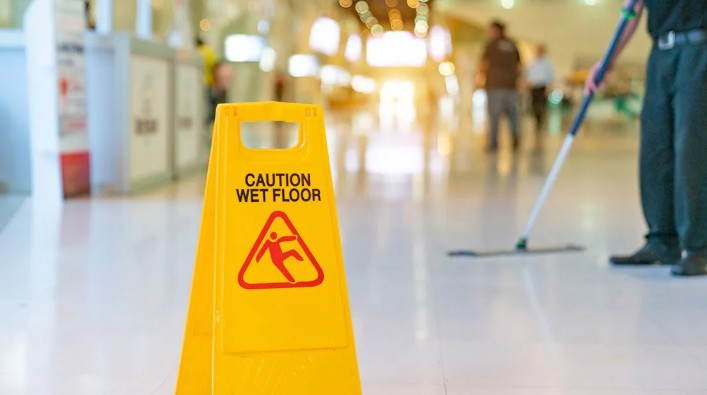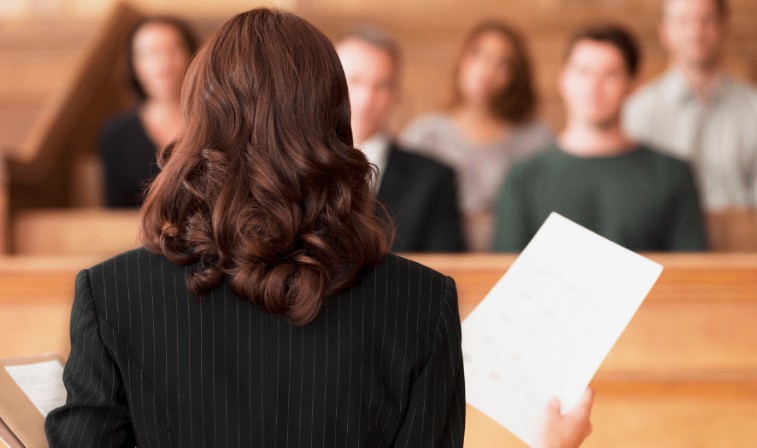
Slip and fall injuries are more common than you would ever imagine, and they can happen to anyone at any time. In case you’ve ever wondered, what if you slip and fall at store while shopping? Then you should understand that protecting your physical well-being and your financial well-being should top your agenda. Moving around once the accident has occurred can be the difference between having the proper treatment and getting rightful compensation.
In a Hurry? Dial +1213-596-0265 Now!
First and Foremost Things to Do After a Slip and Fall at Store Accident
The very first and number one thing is to receive immediate medical attention. Even if you are currently fine, concussions, internal damage, or soft tissue injuries do not necessarily present symptoms right away. You have to obey all the instructions from your doctor, and never miss an appointment for follow-up.
After getting medical attention, ask for a copy of the store’s incident report. Most stores have rules for reporting accidents on their properties. The report can be helpful if you want to pursue a personal injury case.
Whether or not to seek damages via the store’s insurance company is a serious decision. Seeking out an experienced personal injury lawyer can inform you of your rights and make a good case if you do decide to proceed.
Documenting Your Injuries Carefully
When deciding what to do if you slip and fall in a store, one of the most critical considerations is the recording of your injuries. Gather and hold onto copies of all medical records, including:
- EMT reports at the scene
- Hospital reports
- Physician visit notes
- Referrals to specialists
- Image results (X-rays, MRIs, CT scans)
In addition to records, photographic evidence is also very helpful. Have someone take good photographs of any visible injuries like bruises, cuts, or scrapes. If you have medically necessary equipment like crutches, casts, braces, or wheelchairs, keep good records and receipts for those, too.
Documenting Other Injury-Related Expenses
Slip and falls have unseen costs. Aside from your medical bill, there might be additional bills that you can specify on a claim. For example, if you can no longer maintain your home, prepare meals, or drive the kids to school due to the injury, these payments can be reimbursed to you. Everything adds up, and these bills should not belong to you if the store had been negligent.
Keep all your receipts for home care, transportation services, or any other expense you’ve paid as a result of your injury. All this information helps your attorney advocate for maximum reimbursement.

In a Hurry? Dial +1213-596-0265 Now!
Determining Lost Income
Another part of what happens when you slip and fall in a store is the economic impact caused by lost work time. If the injuries cause you to remain out of work without pay, have to take sick days, or have to leave your job, you can recover for lost wages.
Make sure to obtain prior checks, bank statements, and other work records confirming your regular earnings. The longer you cannot work, the more it is necessary to establish the loss to your economy and family. Lost wages claims can also involve lost opportunities like commissions, bonuses, and promotions.
If your injury disables you for life or forces you to change professions, your lawyer can also recover loss of earning capacity damages, protecting your future.
Collecting Solid Evidence
The strength of your evidence is usually dependent upon the quality of evidence that you can provide. In addition to medical reports, you should:
- Get photographs of the site of the accident (e.g., wet floors, low lighting, cracked pavement)
- Document your injuries immediately and throughout the recovery process
- Save clothing or footwear that was being worn at the time of the fall, especially if they have evidence of the accident
- Demand copies of the store’s security tapes, if they exist
- Obtain witness statements and contact information
Preserving all the pieces of evidence in their original form can win or lose your slip and fall case.
Familiarity with the Statute of Limitations
Something that few people know about what can happen if you fall and slip in a store is that you do not have forever to file a lawsuit. There is a statute of limitations on personal injury lawsuits in every state, typically one to four years from the date of the accident.
It is time-consuming to handle insurance firms, so you need to be proactive. If outside the legislative time limit, you could forfeit your right to make a compensation claim altogether. When you have a lawyer on board early in the process, you do not miss critical deadlines.
What a Lawyer Can Do?
Having a specialist personal injury lawyer can make things simpler after a slip and fall accident. A lawyer can:
- Help you gather and keep evidence
- Negotiate on your behalf with insurance firms
- Ensure all the timelines are met
- Fight for you to receive the maximum compensation you are entitled to
In law firms, lawyers work on a contingency fee, hence, you will not have to pay anything at first. They get paid only if they succeed in winning your case. This helps victims of accidents gain quality legal services without using their own money.
You are not liable for falling and slipping in a store because of unsafe conditions. Property owners have a legal duty to keep their property safe for individuals visiting their property. If they do not perform this duty, they are legally liable.

Summing Up!
If ever you find yourself wondering, What if I fall and slip in a store? Keep these important steps in mind: guard your health, document everything, track your bills and lost wages, obtain good evidence, and obtain an attorney. Moving quickly and in an organized fashion can be the difference between receiving the compensation you need to heal and move on with your life.
Injured in a slip and fall? Call Tenina Law today for help and the reward you deserve!
